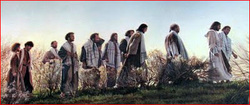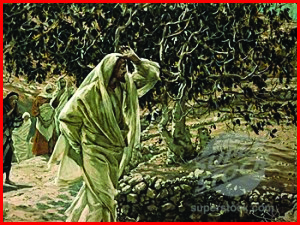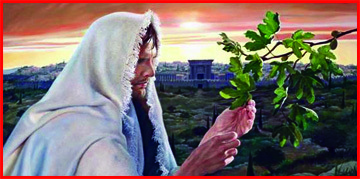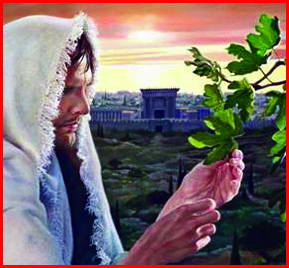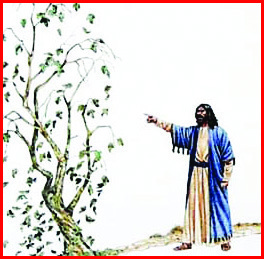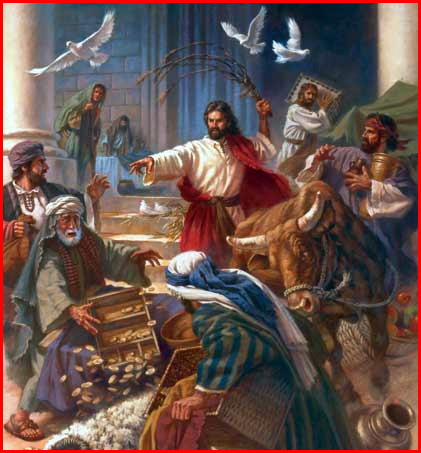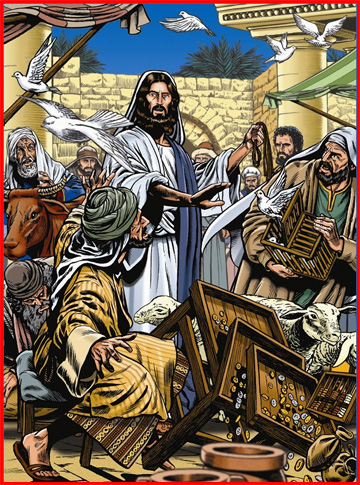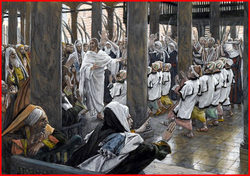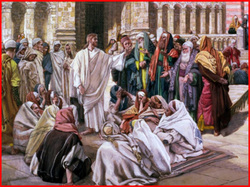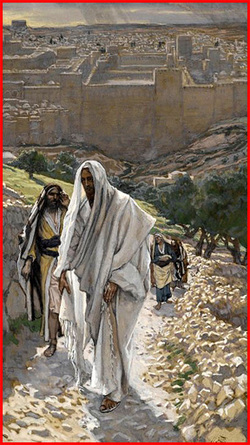| Devotion to Our Lady |
|
- Homepage
-
Daily Thoughts
- 2023 October Daily Thoughts
- Daily Thoughts Lent 2020
- Daily Thoughts for Advent 2019
- Daily Thoughts for October 2019
- Daily Thoughts for September 2019
- Daily Thoughts for August 2019
- Daily Thoughts for July
- Daily Thoughts for June
- Daily Thoughts for Easter 2019
- Daily Thoughts for Lent 2019
- Daily Thoughts for Christmas
- Daily Thoughts Easter 2022
- Sacred Heart
- Holy Ghost
-
Spiritual Life
- Holy Mass Explained
- First Friday Devotions
- First Saturday Devotions
- The Mercy of God
- Vocations
- The Path Everyone Must Walk >
- Gift of Failure
- Halloween or Hell-O-Ween?
- Ignatian Spiritual Exercises >
- Meditation is Soul-Saving
- Spiritual Communion
- Miraculous Medal
- Enrollment in Miraculous Medal
- St. Benedict Medal
- Holy Water
- Advice on Prayer
- Your Daily Mary
-
Prayers
- September Devotions
- Seven Sorrows of Our Lady
-
Novenas
>
- NV-Help of Christians
- NV-Nativity of Our Lady
- NV-Seven Sorrows
- NV- Sorrowful Heart
- NV-Pope St Pius X
- NV-La Salette
- NV-St Michael Archangel
- NV-Immaculate Heart
- NV-Assumption
- NV-Novena for Fathers
- NV-Novena for Your Mother
- NV-St Raphael Archangel
- NV-Souls in Purgatory
- NV-All Saints Day
- NV-Christ the King
- NV-Divine Motherhood
- NV-Guardian Angels
- NV-Rosary
- NV-Mirac Med
- NV- Imm Conc
- NV - Guadalupe
- NV - Nativity of Jesus
- NV-Epiphany
- NV-OL Good Success
- NV-Lourdes
- NV-St Patrick
- NV-St Joseph
- NV-Annunciation
- NV-St Louis de Montfort
- NV-OL Good Counsel
- NV-Last Supper
- NV-Passion
- NV-Pentecost
- NV-Ascension
- NV-Sacred Heart
- NV-Sacred Heart & Perpetual Help
- NV-Corpus Christi
- NV-OL of Perpetual Help
- NV-Queenship BVM
- NV-OL of Mount Carmel
- NV-St Mary Magdalen
- NV- Im Hrt
- August Devotions to IHM
- Immaculate Heart of Mary
- Litany of Dependence
- Prayers to St Mary Magdalen
- Prayers in Times of Sickness Disease & Danger
- Holy Souls in Purgatory
- Meditations on the Litany of Our Lady
- Special Feast Days
- Prayers to Mary (Mon-Sun)
- Litanies to Our Lady >
- Various & Special Needs
- Our Lady of the Rosary
- Our Lady of Mt. Carmel
- Our Lady of Perpetual Help
- Our Lady of Guadalupe
- Other titles of Our Lady
-
Rosary
- Downloads
- Consecration
- Easter Season
-
Holy Week
- Last Seven Words of Jesus >
- Characters of Passion >
- The Last Days of Christ
- Before Palm Sunday
- Palm Sunday
- Monday in Holy Week
- Tuesday in Holy Week
- Wednesday in Holy Week
- Holy Thursday (Last Supper)
- Holy Thursday (Agony & Arrest)
- Night Vigil with Christ
- Good Friday (Pilate & Herod)
- Good Friday (Way of Cross & Crucifixion)
- Saturday in Holy Week
-
Lent
- Ideas for Lent
- Daily Lenten Planner
- Daily Lenten Liturgy
- From Cold to Hot
- Lent with Aquinas
- Lent with Dom Gueranger
- Virtues for Lent
- History of Penance
- How Expensive is Sin?
- Confession of Sins
- Letter to Friends of the Cross
- Sermons for Lent
- Stations of the Cross >
- Lenten Prayers
- 7 Penitential Psalms
- Lenten Psalms SUN
- Lenten Psalms MON
- Lenten Psalms TUE
- Lenten Psalms WED
- Lenten Psalms THU
- Lenten Psalms FRI
- Lenten Psalms SAT
- Lenten Laughs
- Septuagesima
-
Christmas
- Epiphany Explained
- Suggestions for Christmas
- Food For Thought
- Christmas with Aquinas
- Christmas with Dom Gueranger
- Christmas Prayers
- Candles & Candlemas
- Christmas Sermons
- Christmas Prayers SUN
- Christmas Prayers MON
- Christmas Prayers TUE
- Christmas Prayers WED
- Christmas Prayers THU
- Christmas Prayers FRI
- Christmas Prayers SAT
- Twelve Days of Christmas >
-
Advent Journey
- Purgatory
- Christ the King
- Legion of Mary
- Scapular
-
Saints
-
Martyrs for the Faith
>
- Your Daily Martyr >
- All 365 Days of Martyrs
- Cristeros
- St Valentine & Valentine's Day
- Martyrs--Thomas Becket
- Martyrs--John the Apostle
- Holy Machabees
- Age of Martyrdom
- Carmelites of Compiegne
- Martyrs--Peter & Paul
- Martyrs--John the Baptist
- Martyrs--Andrew
- Martyrs--James the Great
- Martyrs--North American
- Martyrs--Seven Holy Sleepers
- Martyrs--Afra
- School of Martyrdom
- Martyrs--Christina
- Desert Saints >
- Saints for Sinners >
- Saints of Mary >
- History of All Saints Day
-
Martyrs for the Faith
>
- Precious Blood
- Synod 2023
-
Catechism
- Catechism Lesson 1
- Catechism Lesson 2
- Catechism Lesson 3
- Catechism Lesson 4
- Catechism Lesson 5
- Catechism Lesson 6
- Catechism Lesson 7
- Catechism Lesson 8
- Catechism Lesson 9
- Catechism Lesson 10
- Catechism Lesson 11
- Catechism Lesson 12
- Catechism Lesson 13
- Catechism Lesson 14
- Catechism Lesson 15
- Catechism Lesson 16
- Catechism Lesson 17
- Catechism Lesson 18
- Catechism Lesson 19
- Catechism Lesson 20
- Catechism Lesson 21
- Catechism Lesson 22
- Bible Study
-
Calendar
- Miracles
- Apparitions
- Shrines
- Prophecies
- Angels Homepage
- Hell
-
Church Crisis
- Conspiracy Theories
- Amazon Synod 2019 >
- Liberalism & Modernism
- Modernism--Encyclical Pascendi
- Modernism & Children
- Modernism--Documents
- The Francis Pages
- Church Enemies on Francis
- Francis Quotes
- Amoris Laetitia Critique
- Danger of Ignorance (Pius X)
- Restore all In Christ (Pius X)
- Catholic Action (Pius X)
- Another TITANIC Disaster?
- The "Errors of Russia"
- CRISIS PRAYERS
- Election Novena 2024
- The Anger Room
- War Zone
- Life of Mary
- Spiritual Gym
- Stupidity
- Coronavirus and Catholicism
- History & Facts
- Books
- Catholic Family
- Children
- Daily Quiz
-
Novena Church & Pope
- Day 01 Church-Pope Novena
- Day 02 Church-Pope Novena
- Day 03 Church-Pope Novena
- Day 04 Church-Pope Novena
- Day 05 Church-Pope Novena
- Day 06 Church-Pope Novena
- Day 07 Church-Pope Novena
- Day 08 Church-Pope Novena
- Day 09 Church-Pope Novena
- Day 10 Church-Pope Novena
- Day 11 Church-Pope Novena
- Day 12 Church-Pope Novena
- Day 13 Church-Pope Novena
- Day 14 Church-Pope Novena
- Day 15 Church-Pope Novena
- Day 16 Church-Pope Novena
- Day 17 Church-Pope Novena
- Day 18 Church-Pope Novena
- Day 19 Church-Pope Novena
- Day 20 Church-Pope Novena
- Day 21 Church-Pope Novena
- Day 22 Church-Pope Novena
- Day 23 Church-Pope Novena
- Day 24 Church-Pope Novena
- Day 25 Church-Pope Novena
- Day 26 Church-Pope Novena
- Day 27 Church-Pope Novena
- Day 28 Church-Pope Novena
- Day 29 Church-Pope Novena
- Day 30 Church-Pope Novena
- Day 31 Church-Pope Novena
- Day 32 Church-Pope Novena
- Day 33 Church-Pope Novena
- Day 34 Church-Pope Novena
- Day 35 Church-Pope Novena
- Day 36 Church-Pope Novena
- Day 37 Church-Pope Novena
- Day 38 Church-Pope Novena
- Day 39 Church-Pope Novena
- Day 40 Church-Pope Novena
- Day 41 Church-Pope Novena
- Day 42 Church-Pope Novena
- Day 43 Church-Pope Novena
- Day 44 Church-Pope Novena
- Day 45 Church-Pope Novena
- Day 46 Church-Pope Novena
- Day 47 Church-Pope Novena
- Day 48 Church-Pope Novena
- Day 49 Church-Pope Novena
- Day 50 Church-Pope Novena
- Day 51 Church-Pope Novena
- Day 52 Church-Pope Novena
- Day 53 Church-Pope Novena
- Day 54 Church-Pope Novena
- Penance Novena
- Daily WeAtheR Forecast
The Greatest and Most Important Week in the Church's Liturgical Year
CLICK ON ANY HOLY WEEK LINK BELOW
Also lots of LENTEN & HOLY WEEK DOWNLOADS on the downloads page (click here)
LITURGICAL PRAYERS FOR EACH DAY OF THE WEEK DURING LENT
| Sundays of Lent | Mondays of Lent | Tuesdays of Lent | Wednesdays of Lent | Thursdays of Lent | Fridays of Lent | Saturdays of Lent |
HOLY WEEK PAGES
| Daily Thoughts | Holy Week Main Page | Before Palm Sunday | Palm Sunday | Last Days of Christ |
| Holy Thursday Last Supper Novena | Good Friday Passion Novena |
| Monday of Holy Week | Tuesday of Holy Week | Wednesday of Holy Week | Holy Thursday (Last Supper) | Holy Thursday (Agony & Arrest) |
| Night Vigil With Christ | Good Friday (Pilate & Herod) | Good Friday (Way of Cross & Crucifixion) | Holy Saturday |
THE CHIEF CHARACTERS OF THE PASSION
| Characters of the Passion Mainpage | The Sanhedrin | Pharisees | Scribes | Saducees | Jewish Crowd | Roman Rulers |
| Judas | Annas & Caiphas | Pontius Pilate | Herod | Barabbas | Dismas the Good Thief | St. Peter | St. John | Mary Magdalen |
THE FOURTEEN STATIONS OF THE CROSS
| Introduction to the Stations of the Cross | Short Version of the Stations of the Cross (all 14 on one page) | 1st Station | 2nd Station | 3rd Station |
| 4th Station | 5th Station | 6th Station | 7th Station | 8th Station | 9th Station | 10th Station | 11th Station | 12th Station | 13th Station | 14th Station |
THE LAST SEVEN WORDS OF JESUS FROM THE CROSS
| Seven Last Words on the Cross (Introduction) | The 1st Word on the Cross | The 2nd Word on the Cross | The 3rd Word on the Cross |
| The 4th Word on the Cross | The 5th Word on the Cross | The 6th Word on the Cross | The 7th Word on the Cross |
PRAYERS AND DEVOTIONS TO THE SEVEN SORROWS OF OUR LADY
| Seven Sorrows Meditations | Short Prayers & Short Seven Sorrows Rosary | Longer Seven Sorrows Rosary |
| 1st Sorrow of Our Lady | 2nd Sorrow of Our Lady | 3rd Sorrow of Our Lady | 4th Sorrow of Our Lady |
| 5th Sorrow of Our Lady | 6th Sorrow of Our Lady | 7th Sorrow of Our Lady |
| Novena #1 to the Sorrowful Heart of Mary | Novena #2 to the Sorrowful Heart of Mary |
LENTEN PAGES
| ASH WEDNESDAY COUNTDOWN | LENT (MAIN PAGE) | DAILY THOUGHTS | DAILY LENTEN LITURGY | DAILY LENTEN PLANNER |
| LENTEN PRAYERS | THE 7 PENITENTIAL PSALMS | IDEAS FOR PENANCE | LENT WITH AQUINAS | LENT WITH DOM GUERANGER |
| HISTORY OF PENANCE | PENANCES OF THE SAINTS | HOW EXPENSIVE IS SIN? | CONFESSION OF SINS | ARE FEW SOULS SAVED? |
| VIRTUES FOR LENT | FROM COLD TO HOT | LENTEN LAUGHS | SERMONS FOR LENT | LETTER TO FRIENDS OF THE CROSS |
| STATIONS OF THE CROSS (INDIVIDUALLY) | ALL 14 STATIONS OF THE CROSS |
| THE LAST DAYS OF CHRIST | SPECIAL HOLY WEEK PAGES |
CLICK ON ANY HOLY WEEK LINK BELOW
Also lots of LENTEN & HOLY WEEK DOWNLOADS on the downloads page (click here)
LITURGICAL PRAYERS FOR EACH DAY OF THE WEEK DURING LENT
| Sundays of Lent | Mondays of Lent | Tuesdays of Lent | Wednesdays of Lent | Thursdays of Lent | Fridays of Lent | Saturdays of Lent |
HOLY WEEK PAGES
| Daily Thoughts | Holy Week Main Page | Before Palm Sunday | Palm Sunday | Last Days of Christ |
| Holy Thursday Last Supper Novena | Good Friday Passion Novena |
| Monday of Holy Week | Tuesday of Holy Week | Wednesday of Holy Week | Holy Thursday (Last Supper) | Holy Thursday (Agony & Arrest) |
| Night Vigil With Christ | Good Friday (Pilate & Herod) | Good Friday (Way of Cross & Crucifixion) | Holy Saturday |
THE CHIEF CHARACTERS OF THE PASSION
| Characters of the Passion Mainpage | The Sanhedrin | Pharisees | Scribes | Saducees | Jewish Crowd | Roman Rulers |
| Judas | Annas & Caiphas | Pontius Pilate | Herod | Barabbas | Dismas the Good Thief | St. Peter | St. John | Mary Magdalen |
THE FOURTEEN STATIONS OF THE CROSS
| Introduction to the Stations of the Cross | Short Version of the Stations of the Cross (all 14 on one page) | 1st Station | 2nd Station | 3rd Station |
| 4th Station | 5th Station | 6th Station | 7th Station | 8th Station | 9th Station | 10th Station | 11th Station | 12th Station | 13th Station | 14th Station |
THE LAST SEVEN WORDS OF JESUS FROM THE CROSS
| Seven Last Words on the Cross (Introduction) | The 1st Word on the Cross | The 2nd Word on the Cross | The 3rd Word on the Cross |
| The 4th Word on the Cross | The 5th Word on the Cross | The 6th Word on the Cross | The 7th Word on the Cross |
PRAYERS AND DEVOTIONS TO THE SEVEN SORROWS OF OUR LADY
| Seven Sorrows Meditations | Short Prayers & Short Seven Sorrows Rosary | Longer Seven Sorrows Rosary |
| 1st Sorrow of Our Lady | 2nd Sorrow of Our Lady | 3rd Sorrow of Our Lady | 4th Sorrow of Our Lady |
| 5th Sorrow of Our Lady | 6th Sorrow of Our Lady | 7th Sorrow of Our Lady |
| Novena #1 to the Sorrowful Heart of Mary | Novena #2 to the Sorrowful Heart of Mary |
LENTEN PAGES
| ASH WEDNESDAY COUNTDOWN | LENT (MAIN PAGE) | DAILY THOUGHTS | DAILY LENTEN LITURGY | DAILY LENTEN PLANNER |
| LENTEN PRAYERS | THE 7 PENITENTIAL PSALMS | IDEAS FOR PENANCE | LENT WITH AQUINAS | LENT WITH DOM GUERANGER |
| HISTORY OF PENANCE | PENANCES OF THE SAINTS | HOW EXPENSIVE IS SIN? | CONFESSION OF SINS | ARE FEW SOULS SAVED? |
| VIRTUES FOR LENT | FROM COLD TO HOT | LENTEN LAUGHS | SERMONS FOR LENT | LETTER TO FRIENDS OF THE CROSS |
| STATIONS OF THE CROSS (INDIVIDUALLY) | ALL 14 STATIONS OF THE CROSS |
| THE LAST DAYS OF CHRIST | SPECIAL HOLY WEEK PAGES |
THE EVENTS OF MONDAY IN HOLY WEEK
VENERABLE MARY OF AGREDA
The Mystical City of God
The Mystical City of God
|
All
the mysteries connected with the triumph of our Saviour were great and
admirable; but not the least wonderful were the hidden effects of the divine
power on the hellish fiends, when, at the entrance of Jesus into Jerusalem,
they were cast into the infernal abysses.
Two entire days, from Sunday until Tuesday of that week, the demons lay shattered by the right hand of the Almighty, manifesting their furious torment to the damned souls of those hellish caverns by their horrid and confused howls of despair. The whole infernal dominion was filled on that occasion with unwonted confusion and pain. The prince of this darkness, Lucifer, more confounded than all the rest, called to his presence all the devilish hosts, and stationing himself on an eminence, spoke to them as their chief. “It cannot be otherwise than that this Man, who thus persecutes us and destroys our influence, and who thus crushes my power, is more than a Prophet. For Moses, Elias and Eliseus, and others of our enemies among the ancients, never vanquished us so completely, although they performed miracles; nor did they ever succeed in hiding from me so many of their doings as this One; for especially of His interior works I can obtain little information. "How can a mere man perform such works and manifest such supreme power over all creation, as are publicly ascribed to Him? Without any change or inflation of mind He received the praise and glorification for these works from the mouths of men. In celebrating this triumphal entry into Jerusalem He has shown new power over us and over all the world; for even now I find my strength for visiting destruction upon Him and blotting out His name from the land of the living vanishing away (Jeremias 11:19). “In His present triumph, not only His own friends have extolled Him and proclaimed Him as blessed, but even many of those who were subject to me have done the same and have called Him the Messias promised in their law; He has drawn them all to venerate and adore Him. This certainly seems to exceed mere human power; and if He is no more than man, there never was one who partook of the divine power in such a degree, and He is doing and will do us great damage. "Since the time when we were cast from Heaven, we have never experienced such ruinous defeat, nor have I ever encountered such overwhelming power before this man came into the world. If He should be the incarnate Word (as we suspect) there is necessity for thorough deliberation; for if we permit Him to live, He will, by His example and teaching, draw after Him all mankind. In my hate, I have several times sought to bring about His death; but without success. In His own country, when I instigated His countrymen to cast Him from the precipice, He contemptuously took His way through the midst of those who were to execute the sentence (Luke 4:30). On another occasion He simply made Himself invisible to the Pharisees, whom I had incited to stone Him.” |
“But now, with the help of His disciple
and our friend Judas, matters seem to promise better success. I have so wrought
upon the mind of Judas, that he is willing to sell and betray his Master to the
Pharisees, whom I have likewise incited to furious envy. They are anxious to
inflict upon Him a most cruel death, and will no doubt do so. They are only
waiting for an occasion, which I will try my utmost to procure for them; for
Judas and the priests and the Pharisees are ready to do anything I suggest.
"Nevertheless I see in this a great danger, which demands our closest attention; for if this Man is the Messias expected by His people, He will offer His Death and all His sufferings for the Redemption of men and thereby satisfy for their misdeeds and gain infinite merits for all of them. He will open the heavens and pave the way for mortals to the enjoyment of those rewards of which God has deprived us. "Such an issue, if we do not prevent it, shall indeed be a terrible torment for us. Moreover, this Man will leave to the world a new example of patience in suffering and show its merit to all the rest of mankind; for He is most meek and humble of heart, and was never seen impatient or excited. These same virtues He will teach all men, which even to think of is an abomination to me, since these are the virtues most offensive to me and to all those who follow my guidance or are imbued with my sentiments. Hence it is necessary to unite on a course of action in regard to persecuting this strange Man, Christ, and that you let me know what is your understanding of this matter.” Then the princes of darkness, lashing themselves to incredible fury against our Redeemer held long consultations concerning this enterprise. They deeply deplored their having been probably led into great error, by plotting His death with so much cunning and malice. They concluded henceforth to make use of redoubled astuteness and cunning to repair the damage done and hinder His death, for they were, by this time, confirmed in their suspicion, that He was the Messias, although they did not reach altogether definite conclusions in this matter. This suspicion was, for Lucifer, the cause of so much anxiety and torment, that he approved of the new determination to hinder the death of the Savior and he closed the meeting by saying: “Believe me, friends, that if this Man is at the same time true God, He will, by His Passion and Death, save all men; our dominion will be overthrown and mortals will be raised to new happiness and dominion over us. We were greatly mistaken in seeking His death. Let us immediately proceed to repair our damage.” HERE ENDS THE EXTRACT FROM THE MYSTICAL CITY OF GOD |
|
The Day Starts with a Curse
On the next day, Monday morning, during the early dawn, Jesus left the neighborhood of Bethany and returned with His disciples to Jerusalem. He had not taken any food before leaving, and He was now hungry, we are told (Matthew 21:18). He then did something that was puzzling. The fields, through which they were passing, were then covered with trees, especially fig-trees, which bordered the highways. The Savior noticed one standing alone, fully leaved-out; He stepped nearer and looked for figs on its branches, but in vain—no fruit could be found. Then the He laid a curse upon it—that it should never again bear fruit: "Henceforth may never fruit be found upon thee!" And from that moment the fig-tree began to wither away; and when they passed that way the following morning (Tuesday) they would see it dried up from the roots. St. Mark says that the disciples found it dead on the following morning (Mark 11:20). Was it Pointless? Even told this, it seems an aimless display of power—hard on the tree's owner, hard to defend. But Mark adds a detail which might, at first, strike us as lifting the incident outside the borders of rationality altogether—he tells us it was not the season for figs! This curious curse has caused an enormous amount of ink to flow from the pens of the exegetes; for could a fig tree be expected to bear any fruit in springtime? The Talmud, in the Schabbath, tells us of two rabbis in Jerusalem who ate fresh figs during the Passover, in Adar, that is March or April. The tree might perhaps have been one of those wild figs which run to leaf and do not fruit. The question seems to be settled by St. Mark, who observes that "it was not the right season for figs." Surely this a strange anathema or curse, if we consider it as merely affecting a tree, incapable of meriting praise or blame! He was teaching, not about fig trees, but about men. And it is always the season for men. There is no off-season in which it would be against the order of nature for men to do their duty to God or their fellows. Hypocrisy Has No Fruit The point of the fig tree parable is the damnableness of an outward show of religion with none of the fruit of religion, which is the love of God and man. The fate of the fig-tree represents the terrible judgment for the hypocrites, for whom this fig-tree was merely the figure, and it was, most of all, terrible for the Jewish people who, while boasting of their laws and their ceremonies, used these outward signs only to hide the hollow insincerity of their righteousness. Jesus was teaching by parable, not telling it but acting it. This death-blow is the only one dealt by the Savior’s merciful hands; indeed it was only wrung from His heart during the last days of His stay among them in the hope of striking their stubborn souls with a holy fear of God; and even here the tender mercies of His heart warded off the blow, moving Him still to spare mankind, and in their stead simply sacrifice an insensible object of His own handiwork. There is something here not altogether unlike the condemnation passed upon Satan after the Fall of our first parents—that henceforth he should go on his belly. How could a pure spirit go on his belly? But God was talking to Satan in serpent language. And our Lord is warning men in fig-tree language. This is the only example in the entire canon of the Gospel of what may be called "a punishment miracle," though several are mentioned in the Apocrypha, and it was performed on a fig tree, a perfectly good fig tree which had not yet had time to bear fruit. But there was a lesson to be given from it. The Twelve could make nothing of the incident. Peter, for them all, asked what it meant. What Jesus may have answered as to the meaning, we are not told. Matthew and Mark simply record his promise that they themselves should do things more spectacular than willing a tree to its destruction, provided only that they had faith. Greater Things Than This You Shall Do! "Look how suddenly it has withered away!" said the disciples. Jesus answered them: "I promise you, if you have faith, and do not hesitate, you will be able to do more than I have done over the fig-tree; if you say to the mountain, Remove, and be cast into the sea, it will come about. If you will only believe, every gift you ask for in your prayer will be granted." A mountain would cast itself into the sea at their command, so long as there was no weakening in their faith—no staggering in their heart, says the Douay version. We get this phrase only in Mark (2:23): Mark got it from Peter himself, who would never have forgotten how his own heart staggered so soon after. There is also a prophetic interpretation: we can see in this miracle one of those symbolic, sometimes curious, dramatic gestures, by which the ancient Prophets announced doom; Jeremias breaking the potter's vessel; Ezechiel shaving his head with a sword. Israel was the accursed fig tree, bowed down with the sterile leaves of the Law, barren of the fruits of love. These parables--spoken on the same day--illustrate this unmistakably. The Master hardly halted long enough to launch this malediction or curse, for a pressing duty was urging Him onward to Jerusalem. The previous day, He had taken note of the secular and irreligious spirit that prevailed among many in the Temple—not least among the vendors and money-changers. He was about to go about “His Father’s business” once again! Jerusalem Was Overflowing When the great Jewish feasts were on, Jerusalem was in a state of great excitement. All the roads were crowded with the caravans of the pious making their way to the Temple of the true God. Every house in the city was crammed full of guests and tents were set up in all the gardens and among the fields and plantations outside the town. Herod Antipas had arrived from Galilee. The Roman Procurator, Pontius Pilate, had come from Caesarea on the coast and had installed himself, as was his custom on such occasions, when the Jewish crowds might easily give trouble, in the fortress of Antonia. His wife had come with him, perhaps out of curiosity. The narrow streets of the city, especially around the Temple, were packed by milling, vociferous, strongly-smelling crowds, and above the turmoil of the mob and the bleatings of some hundred thousand sheep, arose the sound of psalm-singing. Back into the Temple “And He was teaching daily in the Temple. And the Chief Priests and the Scribes and the rulers of the people sought to destroy Him. And they found not what to do to Him―for all the people were very attentive to hear Him” (Luke 19:47-48). The Chief-Priests, the Scribes, the Pharisees and the leading men among the people were eager to do away with Him, but they could not find any means to do it, because all the people hung upon His words. Having left Bethany at the crack of dawn and arriving at Jerusalem in less than an hour’s walk, He went straight to the Temple, where pious Jews were already praying, reciting the Eighteen Benedictions, their arms stretched above their heads. Indignation Shows Itself Sorely indignant at the profanations, which, on the Sunday evening, had met His sight, Jesus had resolved to once more raise His arm in judgment against those who had polluted the Temple. He had already driven away the vendors and money-changers in the earlier years of His ministry, but it seemed as though they had not learnt their lesson. Although it was an early hour in the morning, He found the courts already crowded with traffickers and littered over with beasts. Doubtlessly, with blows from His improvised whip, as He had done once before, so on this occasion, did He beat the buyers and sellers before Him, overturning the money-tables, together with the stands of the dove-vendors. "It is written, 'My House is a House of Prayer,'" He cried, "and you have made it a den of thieves!" Trembling before Him, they all took to flight; soon Jesus remained sole master in the Sanctuary that He had purified. "Nor would He so much as suffer a man to pass through the Temple with an unhallowed vessel" (Mark 11:16). Then, while those Jews, He had just now expelled, made shift to conceal their confusion in the outskirts of the Temple, the blind folk and cripples came hurrying to Him and He healed them. The multitude flocked about Him to hear His words, and were filled with wondering delight. Unstoppable Childish Praise A few moments of anger had been enough to change the tone and atmosphere of God's Holy Hill; whereupon, in place of the noisy tumult, there fell a great calm, like the spirit of recollection, over the courts. Even the children about the Temple were awe-stricken at the stillness; but then, recalling last night's Triumph, forthwith they began to re-enact the victorious chants which had then greeted the Christ. "Hosanna!" sang those little voices, "Hosanna to the Son of David!" Their childish homage angered the enemies of the Lord--they were all there, High-Priests, Scribes, and Chief-Magistrates of the people, all watching Him with envious looks. At sight of these young servants of God, brought up by them, and now hymning the praises of the Nazarene, they could contain themselves no longer. "Do you hear what these are saying?" they cried. "Yes,” replied the Master, "have you never read, ‘Out of the mouth of babes and sucklings Thou hast brought forth a perfect praise'?" In this manner Jesus passed the day wherein, fulfilling the prophecy of Malachias, He had appeared in the Temple, therein to exercise His dominion: “And presently the Lord, Whom you seek, and the angel of the testament, whom you desire, shall come to His Temple. ‘Behold He cometh!’ saith the Lord of hosts” (Malachias 3:1). The Last Days of Teaching The crowd gathered round Him to hear Him speak. Tirelessly, He answered all their questions, taking advantage of any opportunity which offered to expound His teaching. At this time, His teaching at this time is obsessed by His refusal by Israel--He comes back to it again and again, with the limitless sorrow of rejected love. For the next two days, while Jesus was teaching in the Temple, the Sadducees (the priests), Herodians, the Scribes and Pharisees would all harass Him, with their provocative ensnaring questions regarding His beliefs and doctrine. They had decided on His death, but they must still had to ‘get at Him’ as much as possible, to try and discredit Him and to try and pull as much of the popular support away from Him as possible. That Monday evening, Jesus once again left His enemies behind in Jerusalem, and returned to the safe-haven of Bethany. The next day, Tuesday, was to be the last day of His public ministry. It would be a very long, intense and confrontational day. The many serious and competent authors are not altogether clear and unanimous about the exact chronology of events over these days (Palm Sunday to Tuesday), yet that should cause no dismay—for the important thing is WHAT happened and not so much WHEN it happened. The events, that we will now cover, are unanimously and universally held to have occurred during those three days (Palm Sunday to Tuesday) and there is no doubt whatsoever on that point. Some authors are of the opinion that the ‘Cleansing of the Temple’ from the vendors and money-changers took place on Palm Sunday, after Jesus had entered Jerusalem. Other authors are of the opinion that Jesus noted what was happening on Sunday, and then decided to deal with it on Monday. Likewise with the series of parables and responses aimed at the Sadducees (the priests), Herodians, the Scribes and Pharisees—some divide it up over Monday and Tuesday, others hold that all events parables and confrontations took place on Tuesday. We are not going to be dogmatic about WHEN it happened, but we will be dogmatic about WHAT happened. Thus, the parables and confrontations with the Sadducees (the priests), Herodians, the Scribes and Pharisees we will cover tomorrow—Tuesday, since they link so well with one another. |
Web Hosting by Just Host

